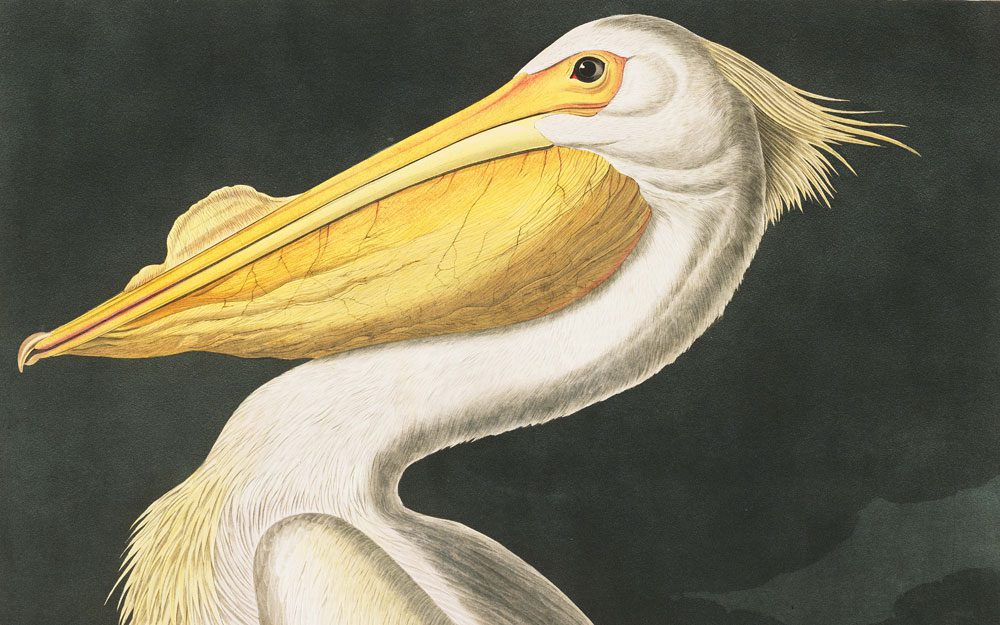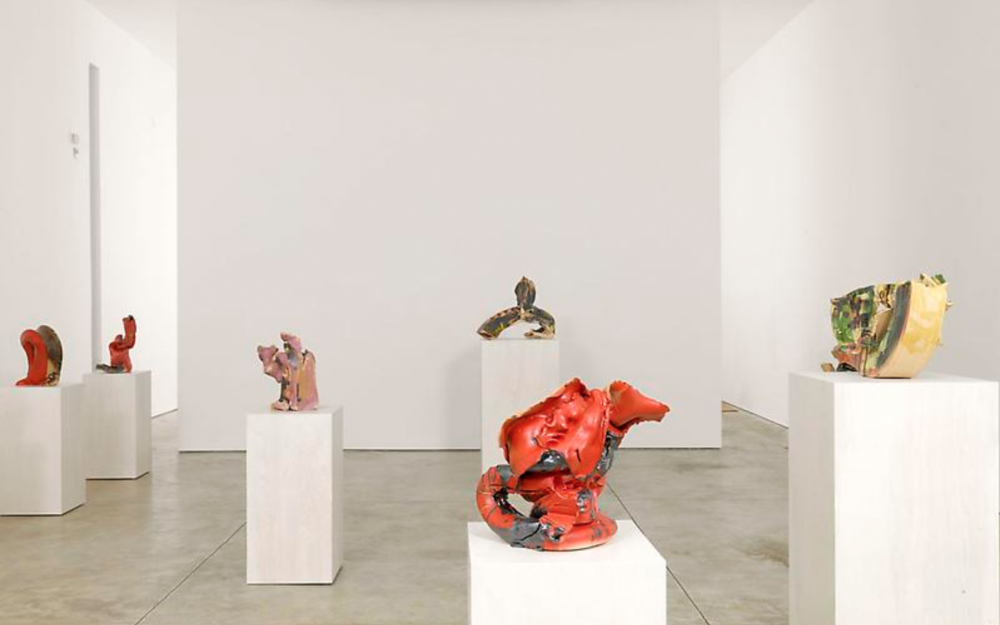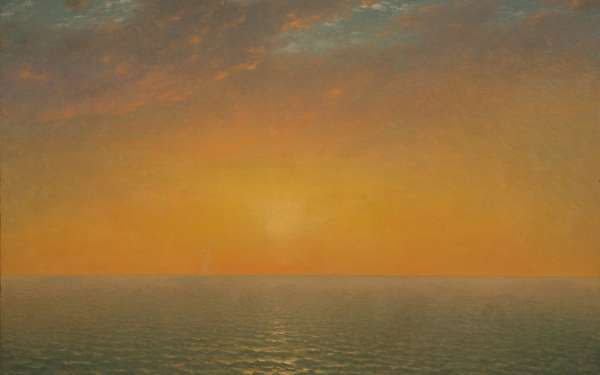A Letter from Us to You
Pelican Bomb is stopping regular operations on November 30, 2018.

John James Audubon, White Pelican from Birds of America, 1827–38. Watercolor (detail). Courtesy the John James Audubon Center, Audubon, Pennsylvania.
Dear friends,
Goodbyes are never easy, but we want you to be the first to know. Pelican Bomb will stop regular operations on November 30, 2018.
Pelican Bomb started as an idea, a communal desire shared by a number of local arts professionals to provide a regional publication focused on the artists and institutions who make our city so special. In the nearly eight years since, due to the work of our small and dedicated staff, Pelican Bomb evolved into a full-fledged arts organization—a platform to elevate critical conversation about contemporary art in New Orleans through publishing, exhibition-making, and other public programs. All of our initiatives have upheld the belief that contemporary art is important and can serve as a valuable lens for examining issues in everyday life.
Since February 2011, when our first articles went live on pelicanbomb.com, we’ve continued to expand our coverage of art in and around New Orleans. With exhibition reviews, thematic and historical essays, interviews, and digital artist projects created just for our site, we’ve worked with both established and emerging voices to share their diverse perspectives on the artists and issues that have impacted New Orleans’ past and are shaping its future. We’ve commissioned artworks and curated exhibitions—in pop-up spaces and in our own dedicated gallery—featuring artists from around the world. We piloted a residency program for art critics, and we started Louisiana’s first and only Community Supported Art program, offering limited-edition artworks by local artists at an affordable price. We’re proud of all that we accomplished, and we couldn’t have done it without you and countless others.
The best conversations change you, which is why we’ve always regarded adaptation as an integral part of our mission to support in-depth discussions about contemporary art in New Orleans. That’s also why we’ve experimented with so many different programs, filling the gaps where we’ve seen them and pushing for inclusivity, equity, and expansive thinking. It’s been important to us that Pelican Bomb be responsive to our community’s needs—willing to step up at times and also to retreat so others’ voices can be heard.
When Pelican Bomb was founded, New Orleans’ art community was very different from what it is today. The city’s arts institutions and museums have expanded their visual arts and educational programs. Crowds of visitors head to the Bywater each Second Saturday for openings and to visit artist-run galleries along St. Claude Avenue. And large-scale exhibitions, international residencies, and new forms of public art have further developed expectations that our city can be a global hub of contemporary art. We’re grateful to be part of this growth.
Collaboration and community have been central to our thinking at Pelican Bomb, and we’ve often questioned the responsibilities and pressures placed on small arts organizations. We have seen many of our peer organizations locally and around the country struggle toward permanence at great sacrifice, and in one of our earliest interviews we posed a question that feels even more urgent to us today: Is longevity necessary for the work of artists, curators, writers, and administrators to have an impact? For some of our colleagues, the goal of long-term financial and programmatic stability has been a rightful priority, but we don’t believe all organizations need to exist forever to be impactful. Organizations can be as diverse in their lifespans, values, structures, and priorities as the people who create them, and there’s beauty and power in that diversity.
At the heart of Pelican Bomb are our relationships, those we’ve built with writers, artists, organizations, and each other. We are excited by the opportunities and possibilities that have grown from these bonds. While Pelican Bomb was an idea birthed by many, its stewardship and all that evolved from it has always rested with our core staff and vision. We believe without that thought leadership, Pelican Bomb would be fundamentally different. Hopefully we’ve provided a practical example of what might come after our close, and we feel confident that our community will continue to find innovative ways to support artists, writers, and critical conversation.
Later this month, we’re co-hosting the annual conference of the Association for the Study of the Arts of the Present, an international gathering of artists, critics, and scholars, in New Orleans. In the coming weeks, we’ll continue publishing the regular coverage you’ve come to expect on the Art Review, followed by reflections on the ideas and methods that have been central to our work. Through the end of October, we’ll also continue to update our calendar of visual arts events in New Orleans. We are archiving Pelican Bomb’s entire website and look forward to sharing with you how all Art Review content may still be accessed in the future.
Thank you again for all of the support you’ve given us, and know that this is not the end, but the beginning of so many things to come.
With love,
Cameron, Amanda, and Charlie



